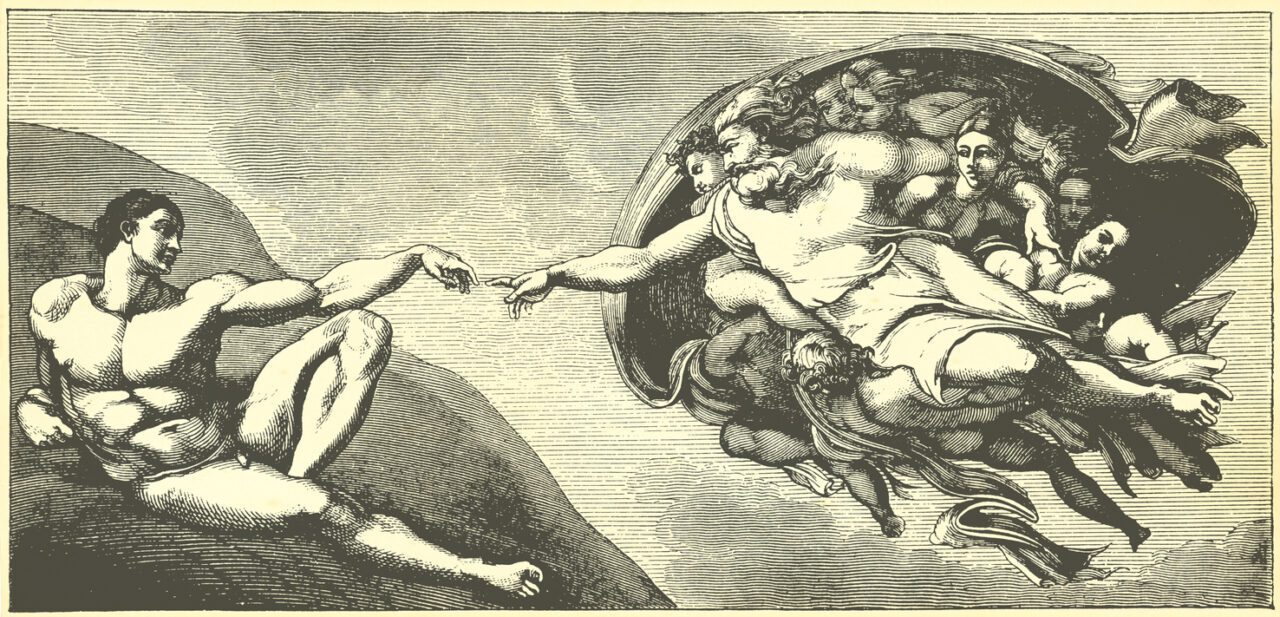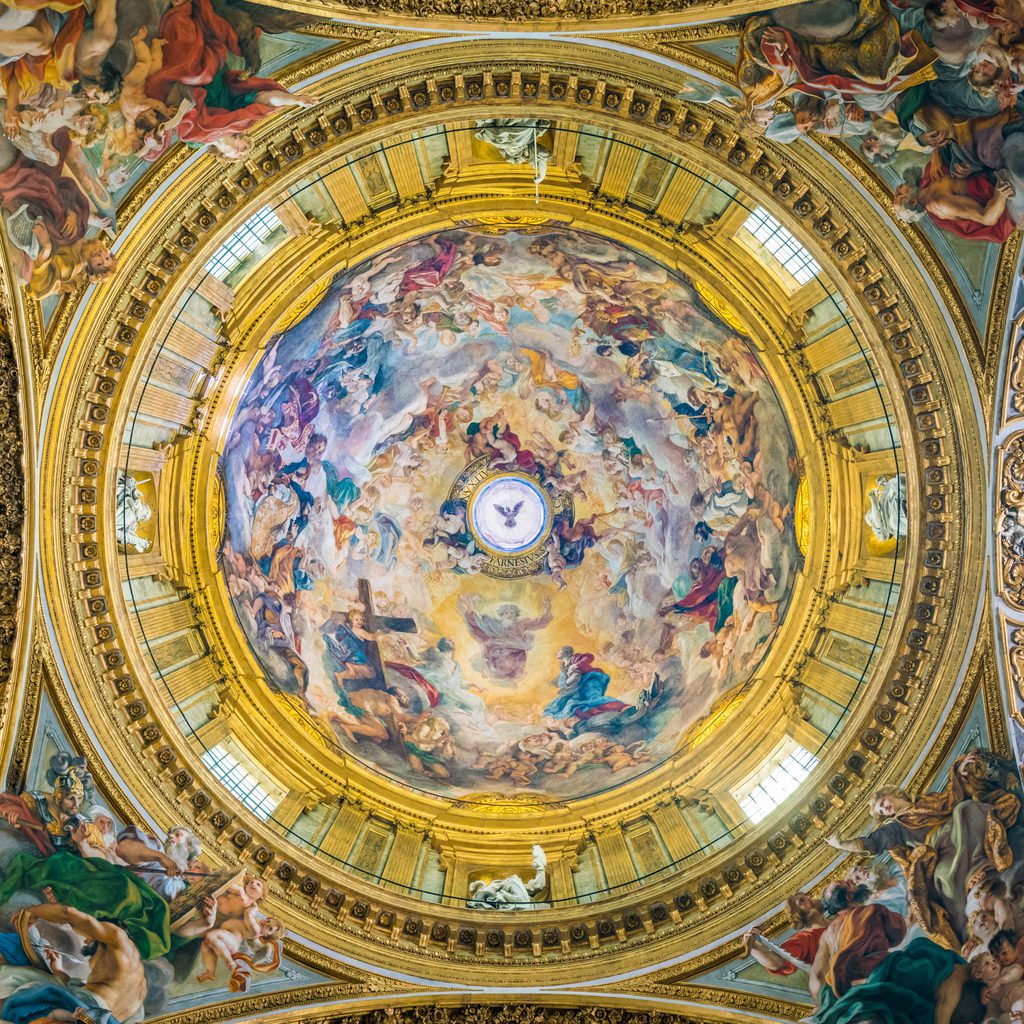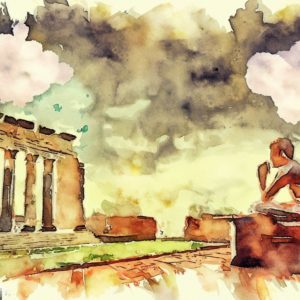Welcome back as we dive deeper into the mysteries of the Logos of the Christ.
What I want to do in this episode is to start filling in the gaps on the various topics I’ve touched upon that I feel are necessary to move forward. This will help answer some of the questions you may have regarding certain things I’ve spoken about and from my point of view, just questions that I am naturally intoning just from hearing myself speak.
I know I’ve bounced around a bit from this vision and time period to that so I will outline the stages or phases in total so you can start forming a mental outline of the various spiritual phases I’ve identified and compartmentalized for the sake of understanding for my own sake, so you know where we’re at when I’m talking about this or that, or when I’m bouncing around further.
I’ve mentioned it briefly in the first podcast, so this seems a good place to return to the term or idea of Beatific Vision as it is called in the Catholic tradition. There are several different definitions regarding this experience from several different saints, St. Thomas comes to mind and I think St. Augustine was the other one that spent some time with this and they each had a bit of a contrast to what it was and how it was experienced. I’ll leave such thoughts to the theologians and instead go straight to the Catechism, since each individual scholar, typically based on their expertise, will side with or favor one definition over another. And that’s simply not my approach, since my approach is based on personal experience first and then seeking to match it with what others have written about. And if my experience fits into one definition more than another, then I suppose it does, but then since I’ve had many experiences, one experience may fit one saint’s definition at one time, and another experience may fit another saint’s definition at another time.
The Catechism does the same in sort of homogenizing all of the sayings and writings and concepts of truth into one. So again, there are variations to the experience, and thus, variations to the understanding of the increasing degree and depth to the experience, or experiences, that are subtle to see and understand. But it does seem to be a known thing. St. John speaks of these increasing degrees of understanding the deeper you go, and then the common idea of God will give you what you can handle at the point you can handle it; or in another way, when you are able to handle and or see more, then God will give and or show more.
So, in order to get this right, again, since I’m sure not everybody reads the Catechism, Catholics especially, which seems a strange phenomenon in the Church, I will simply read what it says regarding Beatific Vision so that you understand as I understand, that this is the goal of the Christian life here, now. Not tomorrow, not in death, though that is why we believe in Purgatory as Catholics since it’s an after place to work these things out, though the truer place to work these things out, the better place to place one’s idea of purgatory as many of the saints have actually attested to, or your own purging, is here and now, since here and now is where the Kingdom of Heaven is: here, now, all around us, though we cannot see it, just as Christ says so in the gospels, and thus, the goal is to see it, the kingdom and the king of the kingdom, God, now.
So, I’m going to read through the passages in the Catechism regarding Beatific vision, Christian beatitude, and desiring to see God.
So, this is from the Catechism of the Catholic Church, (Libreria Editrice Vaticana, 1997). They kind of break it down in . . . there’s pages as well as sections, so I’m going off of the numbered sections. So, this is section 1028:
Because of his transcendence God cannot be seen as he is, unless he himself opens up his mystery to man’s immediate contemplation and gives him the capacity for it. The Church calls this contemplation of God in His heavenly glory, “the Beatific vision”:
How great will your glory and happiness be, to be allowed to see God, to be honored with sharing the joy of salvation and eternal light with Christ your Lord and God . . . to delight in the joy of immortality in the Kingdom of heaven with the righteous and God’s friends.
So, this is a writing from St. Cyprian. The way the Catechism works, it always quotes the various saints that have spoken of the various things.
So, section 1029:
In the glory of heaven the blessed continue joyfully to fulfill God’s will in relation to other men and to all creation. Already they reign with Christ; with him, “they shall reign forever and ever.” Revelations.
Now the next section. This begins with section 1720. Now, this is about Christian beatitude, and beatitude and the Beatific vision are essentially the same thing. So:
The New Testament uses several expressions to characterize the Beatitude to which God calls man:
–the coming of the kingdom of God,
–the vision of God. Blessed are the pure in heart for they shall see God.
–entering into the joy of the Lord,
–entering into God’s rest:
There we shall rest and see, we shall see and love, we shall love and praise. Behold what will be at the end without end. For what other end do we have, if not to reach the kingdom which has no end?
God put us in the world to know, to love, and to serve Him, and so to come to paradise. Beatitude makes us “partakers of the divine nature” and of eternal life. With beatitude, man enters into the glory of Christ and into the joy of the Trinitarian life.
Such beatitude surpasses the understanding and powers of Man. It comes from an entirely free gift of God: whence it is called supernatural, as is the grace that disposes man to enter into the divine joy.
“Blessed are the pure in heart for they shall see God.” It is true, because of the greatness and inexpressible glory of God, that “man shall not see me and live,” for the Father cannot be grasped. But because of God’s love and goodness towards us, and because he can do all things, he goes so far as to grant those who love him the privilege of seeing him. . .. For “what is impossible for men is possible for God.”
The beatitude we are promised confronts us with decisive moral choices. It invites us to purify our hearts of bad instincts and to seek the love of God above all else. It teaches us that true happiness is not found in riches or well-being, in human fame or power, or in any human achievement – however beneficial it may be – such as science, technology, and art, or indeed any creature, but in God alone, the source of every good and of all love:
All bow down before wealth. Wealth is that to which the multitude of men pay an instinctive homage. They measure happiness by wealth; and by wealth, they measure respectability. . .. It is a homage resulting from a profound faith. . .. that with wealth he may do all things. Wealth is one idol of the day and notoriety is a second. . .. Notoriety, or the making of a noise in the world – it may be called “newspaper fame” – has come to be considered a great good in itself, and a ground of veneration.
The Decalogue, the Sermon on the Mount, and the apostolic catechesis describe for us the paths that lead to the Kingdom of heaven. Sustained by the grace of the Holy Spirit, we tread them, step by step, by everyday acts. By the working of the word of Christ, we slowly bear fruit in the church to the glory of God.
Now the next section. This is from the section of life in Christ, of I want to see God, 2548:
Desire for true happiness frees man from his immoderate attachment to the goods of this world so that he can find his fulfillment in the vision and beatitude of God. “The promise [of seeing God] surpasses all beatitude. . .. In Scripture, to see is to possess. . .. Whoever sees God has obtained all the goods of which he can conceive.”
It remains for the holy people to struggle, with grace from on high, to obtain the good things God promises. In order to possess, and contemplate God, Christ’s faithful mortify their cravings and, with the grace of God, prevail over the seductions of pleasure and power.
On this way of perfection, the Spirit and the Bride call whoever hears them to perfect communion with God.”
There will true glory be, where no one will be praised by mistake or flattery; true honor will not be refused to the worthy, nor granted to the unworthy; likewise, no one unworthy will pretend to be worthy, where only those who are worthy will be admitted. There true peace will reign, where no one will experience opposition either from self or others. God himself will be virtue’s reward; he gives virtue and has promised to give himself as the best and greatest reward that could exist. . .. “I shall be their God, and they will be my people. . ..” This is also the meaning of the Apostle’s words: “So that God may be all in all.” God himself will be the goal of our desires; we shall contemplate him without end, love him without surfeit, praise him without weariness. This gift, this state, this act, like eternal life itself, will assuredly be common to all.
That was from St. Augustine it appears in the quote.
The key concept that I want to get across is that there is no waiting. One does not have to wait until death to enter into the kingdom of heaven. The fact that Jesus shows us this through his life is again entirely for our own sake, for he existed in the world, fully man, and in the kingdom of heaven, fully divine, right? Simultaneously is the theology surrounding the second person of the Trinity taught within the Nicene Creed.
Now, let us understand eternity a bit in order to understand the kingdom of heaven all around us, though we do not see it. So, this is the best way that I’ve been able to contemplate this:
“Excerpts from the English translation of the Catechism of the Catholic Church for use in the United States of America Copyright © 1994, United States Catholic Conference, Inc. — Libreria Editrice Vaticana. Used with Permission. English translation of the Catechism of the Catholic Church: Modifications from the Editio Typica copyright © 1997, United States Conference of Catholic Bishops—Libreria Editrice Vaticana.”





